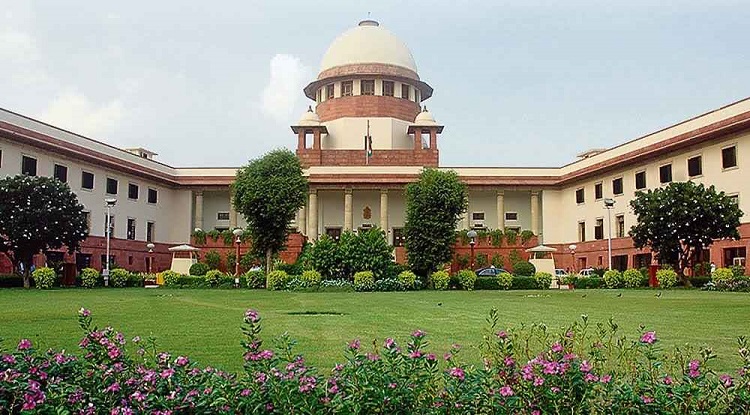
New Delhi: The Supreme Court on Tuesday said that it will start hearing a batch of petitions challenging the abrogation of Article 370 and bifurcation of the erstwhile state of Jammu and Kashmir into two Union territories.
A five-judge Constitution bench of Chief Justice of India DY Chandrachud and Justices Sanjay Kishan Kaul, Sanjiv Khanna, BR Gavai, and Surya Kant said it will proceed to hear the case on a day-to-day basis except on miscellaneous days -- Mondays and Fridays.
It asked all parties to file all documents, compilations and written submissions by July 27.
The bench in its order stated, "The hearing of the petitions before the constitution bench shall commence on August 2, 10.30 am and then proceed on day to day basis barring miscellaneous days that is Mondays and Fridays."
It appointed advocates Prasanna and Kanu Agrawal as the nodal counsel for the preparation of common convenience compilations, which has to be filed by July 27.
"Since compilations were already prepared earlier, should more additions be made, it has to be made by July 27, 2023. Nodal counsel shall ensure compilations are indexed and paginated. All counsel shall be given the copies," the order stated.
The apex court also allowed two petitioners, IAS Shah Faesal and rights activist Shehla Rashid to get their names deleted from the court's records as petitioners.
It said now the title of the case will be "In Re: Article 370 of the Constitution". The earlier lead petitioner was Shah Faesal. The bench also noted the Centre's statement that the latest affidavit filed by the government shall not be relied upon to argue on the aspect of Constitutionality.
"Solicitor General Tushar Mehta has submitted that though Centre has filed an additional affidavit setting out the Central government's view on post notification development. It would have no bearing on the constitutional question and it would not be relied upon," the top court stated in its order.
Yesterday, the Central government defended its decision to abrogate Article 370 from Jammu and Kashmir saying post the changes, street violence, which was engineered and orchestrated by terrorists and secessionist networks has now become a thing of the past.
Since 2019, when Article 370 was abrogated, the entire region has witnessed an "unprecedented era of peace, progress and prosperity", the Centre said.
After the abrogation of Article 370 from Jammu and Kashmir life has returned to normalcy there after three decades of turmoil, the Centre in its affidavit told the Supreme Court.
It has been said that schools, colleges and universities are functioning without any strikes during the last three years.
Various petitions are pending before the top court challenging the validity of the law scrapping Article 370 of the Constitution and special status to Jammu and Kashmir and bifurcating the state into two Union Territories.
On August 5 2019, the Central government announced its decision to revoke the special status of Jammu and Kashmir granted under Article 370 and split the region into two Union territories.
A five-judge Constitution bench in March 2020 had declined to refer to a larger 7-judge bench a batch of petitions challenging the Constitutional validity of the Centre's decision to abrogate provisions of Article 370 on August 5, saying there were no reasons to refer the matter to a larger bench.
A number of petitions have been filed in the top court including those of private individuals, lawyers, activists and politicians and political parties challenging the Jammu and Kashmir Reorganisation Act, 2019, which splits Jammu and Kashmir into two Union Territories -- Jammu and Kashmir, and Ladakh. (ANI)







